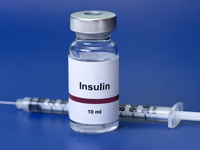Sanofi, Lilly and Novo make cases for diabetes drugs at ADA

The American Diabetes Association (ADA) annual conference has dominated the medical research headlines this weekend as pharma and biotech firms unveiled latest data from therapies for type 2 disease.
The big manufacturers of diabetes drugs and insulins such as Sanofi, Eli Lilly, and Novo Nordisk are trying to produce data that will differentiate their products in an increasingly competitive market where there is a pressing need to justify prices, particularly in the US.
At the conference held this year in San Francisco, Sanofi produced results of an analysis of the BRIGHT head-to-head study comparing Toujeo (insulin glargine injection) with Novo Nordisk’s long-acting rival Tresiba (insulin degludec).
Results showed Toujeo resulted in greater improvement in blood sugar control (HbA1c) compared to Tresiba (-1.72% vs. -1.30%, respectively) with no difference in incidence or event rates of confirmed low blood sugar (hypoglycemia) in adults with type 2 diabetes and moderately to severely impaired renal function.
The results are significant as Novo Nordisk has been highlighting the benefits of its Tresiba (insulin degludec) as a way of reducing risk of low blood sugar, and the accompanying health risks.
There has also been a lot of activity in the GLP-1 class, where Novo Nordisk and Eli Lilly are fighting it out with weekly injected Ozempic (semaglutide) and Trulicity (dulaglutide), respectively.
Novo has already produced data from its PIONEER 2 and 4 studies into its oral formulation of semaglutide, with more data due from PIONEER 6 later this week.
In PIONEER 2, oral semaglutide 14 mg demonstrated a superior blood sugar reduction of 1.3% compared to a 0.9% reduction with empagliflozin 25 mg for the primary endpoint at 26 weeks and a statistically significant reduction in blood sugar for the secondary endpoint at 52 weeks.
PIONEER 4 showed oral semaglutide was as good as Novo’s daily GLP-1 injection Victoza (liraglutide) when it comes to reducing blood sugar, while outperforming placebo.
Novo announced in November that its PIONEER 6 study comparing oral semaglutide with placebo, both in addition to standard of care, had hit its primary endpoint of non-inferiority of major adverse cardiovascular events (MACE) compared with placebo.
A 21% reduction in MACE compared with placebo was non-significant but Novo will unveil detailed data later this week.
Eli Lilly published detailed results from REWIND, the Trulicity cardiovascular outcome trial, which showed a significant 12% reduction in MACE. REWIND data showed a consistent MACE 3 effect in people with and without established CV disease.
Lilly also published mid-stage data from several studies of its dual GIP and GLP-1 receptor agonist tirzepatide, with data including improvements in markers of beta cell function and insulin sensitivity.
There were significant blood sugar and body weight reductions in Japanese people with type 2 diabetes after eight weeks of treatment and improvements in markers of non-alcoholic steatohepatitis (NASH), liver inflammation and cell damage caused by liver fat in people with type 2 diabetes.













